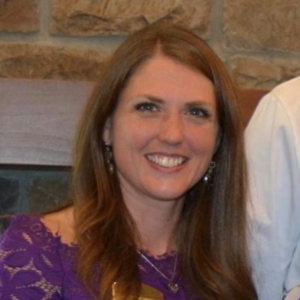Overcoming unhappiness
Many older people live unhappily in residential settings that are designed to help them. How can you help a resident who is unhappy, has lost interest in life, or has become testy and difficult? The following example is about one of the lucky few who can afford to live in a high-quality CCRC and who has a devoted family. Still, his story can help us explore some options.
THE STORY OF SAMUEL G
After serving in WWII, Samuel became a lawyer. He married and put his three children through college, gave them down payments for their houses and later paid for his grandchildren’s college educations.
His wife’s parents and his father died without becoming disabled. His mother, however, developed severe dementia. Samuel and his wife kept her at home, but eventually found it too difficult and moved her to a nursing home. It was well-run, clean and had caring staff. But the room she shared with a series of strangers was small; she could keep only a few mementos of her long life. She became depressed, turned increasingly inward and was miserable when she died. To avoid this fate, Samuel and his wife signed up for a CCRC where they could live independently as long as possible, could move to assisted living when necessary and go to the nursing home only as a last resort.
Sadly, his wife died shortly after they moved in. Despite his great loss, Samuel maintained many friendships, was active on various committees and visited his children and grandchildren frequently until he was about 90. Then memory loss began to limit his abilities. For several years he continued to live in his own apartment, went out for meals and activities on his own and managed his medications with help from the onsite clinic. But when the bills went unpaid, his daughter took over his finances. He had to give up driving and needed more reminders for meals and medications. Although he enjoyed calls and visits from his children and grandchildren, he rarely remembered specific conversations or what they did. The staff and his children became concerned that he was becoming isolated and not eating enough. Samuel eventually moved to assisted living where he had a room spacious enough for many of his most treasured possessions, not at all like the nursing home where his mother died.
In the beginning his old friends from independent living visited him and some invited him to dinner, but this diminished over time. He had not made new friends on the “memory unit.” He usually stays alone in his room. He could go out, but was a bit frightened to go off alone and offended that he had to sign in and out under the watchful eye of a staff member. At mealtimes he went to the unit dining room, greeting people with a smile and a simple pleasantry, but not really remembering who they are. He ate mostly in silence.
Sometimes he participated in group activities, but most often felt that the “activities” were for people much more disabled than him. He did go to theatre or concerts when the residence arranged trips. However, he rarely remembered the specifics of the events after returning home, but did retain the emotions they evoked.
Staff members brought him his medication several times a day. He does not remember what medications were and sometimes insists that the doctor explain why he needs them. He also forgot that the doctor or nurse practitioner had already done so. His angry insistence annoyed the staff. They saw him as “difficult,” “unpleasant” or even “nasty.” Increasingly, he spent his days in his room reading books he enjoyed but cannot remember, often reading the same page over and over again.
When he was younger, Samuel was an avid reader both for work and for pleasure. He particularly liked political history. He also followed the Yankees carefully and had known all the players’ names and stats. He loved comedy improv; his loud belly laugh made him one of those people comics love to have in the audience. But in the assisted living facility, he rarely laughed anymore. In fact, he didn’t seem to get any joy out of life except when his grandchildren visited. Everyone felt sorry for Samuel and wanted to help him enjoy the last years of his life, but they didn’t know what to do.
This sad scenario can be rewritten by using creative approaches to combating unhappiness in the LTC setting. Addressing Samuel’s needs in a personalized approach can improve his mood and his quality of life.
TREATING MENTAL ILLNESS
Think about unhappiness from the perspective of mental illness. Samuel, for example, is sad, bored and irritable—all symptoms of a major depressive disorder (MDD). Referral to a mental health professional for an assessment and treatment makes a great deal of sense. In general, mental health training for the staff of residential facilities, routine screening and easy access to good mental health assessment and treatment are critical components of long-term care.
SITUATIONAL APPROACHES
It is also possible to approach Samuel’s unhappiness not as an illness but as a reflection of his current life situation. He is lonely, bored and feels demeaned; each can be addressed directly.
Dealing with loneliness. Samuel has not had an intimate relationship since his wife died. Family members call every day, but he’s on the phone less than ½ hour, leaving 23½ hours a day without family contact except when they come to visit for a few hours. His old friends are gone and he has not made new friends on the unit. He has a lot of contact with the staff, but no personal relationships. Staff members are helpers; he is the helped.
More contact with people would definitely improve Samuel’s mood. Encouraging his family and old friends to spend more time with him might help, but it probably would have limited impact. People with past relationships often find it difficult to spend time with people with dementia. With help, visitors can modify their expectations, learn to tolerate repetition, have conversations that are more about the good feeling of being together than about substance and learn to be in the moment. They may also find it helpful to create memory externally by leaving notes in a “memory book” at the end of a visit. But family and old friends are likely to have limited time for a social relationship with someone who is no longer part of the mainstream of their life. Realistically, other steps need to be taken.
For example, a paid or volunteer companion who visits regularly might be helpful. He or she could “hang out” with the lonely resident, help with personal chores, or take him or her out for lunch or to pursue an old interest. A trip to a ballgame or a comedy club might work wonders on Samuel’s mood.
People like Samuel want to touch and be touched, have a “girlfriend” to hold hands with and hug or even explore sexual relationships. Family and staff should understand and accept the need for intimate relationships. However, coercion might be a concern because of memory impairment. Is an only dimly remembered choice still a choice? This, too, can and should be dealt with because sexuality is a natural part of life often overlooked or even frowned upon.
Countering boredom. Spending all day and night in the same place is inherently boring—all the more so when there is little to do that appeals to personal interests. Samuel used to enjoy favorite pastimes. Going over baseball stats with him, discussing current politics, playing tapes of comedy performances or reading a newspaper or a political biography together might be satisfying for someone like Samuel. Even if the activity isn’t remembered a few minutes later, the person with dementia is likely to retain a positive feeling.
Building pride. Adults, who have taken care of themselves and their families most of their lives, often find it demeaning and depressing to need help. Encouraging them to help others can do wonders for their self-esteem and mood. Although generally unnoticed, people with disabilities often have abilities that can be helpful. There are certainly contributions that Samuel can make if someone searches them out. Perhaps he would enjoy speaking about legal matters or delivering a sports report. Perhaps he can be a companion for another lonely resident or read to someone with vision loss.
Giving the elderly opportunities to talk about past achievements can also lift their mood. Whether mundane tasks managed well or significant contributions to one’s community, almost everyone can look back to something with pride if someone helps them frame the events of their lives as achievements, providing photographs, letters, awards and news clippings that jog their memories and feelings.
Supporting independence and individuality. Unfortunately, many residential settings provide meals, activities, case management and help with medication in ways that undermine independence and individuality. Even at the lovely facility where Samuel lives, choice is extremely limited. There’s a time to get up in the morning and a time to go to bed at night. There’s a time for meals and a time for snacks. Activities are scheduled. There are only a few options at each meal. Activities are not mandatory, but they also are not individualized. This structure takes a psychological toll on residents, who feel that they do not have control of their own lives and that there is no place for the unique people that they are.
Of course, providing choice in a residential setting takes planning and effort, but it is worth it. Rigid structures may just be waiting to be changed, especially if they are unreflective carryovers of stagnant traditions—hard and fast distinctions between able and disabled, helper and helped, with those in charge insisting that residents do what they are told.
CULTURE CHANGE
Recognition of the impact of rigid structures on the well-being of residents has led to major efforts to bring about “culture change,” emphasizing respect, autonomy and choice. Hopefully, pursuit of these goals will spread rapidly throughout the field of residential care so that people like Samuel can get the most out of their final years.
Michael B. Friedman, LMSW, is an Adjunct Professor at Columbia University and co-Founder of The Geriatric Mental Health Alliance in New York City. John Zeisel, PhD, is President and Founder of Hearthstone Alzheimer Care and the Hearthstone Alzheimer’s Foundation; and Maria Eulo, MPA, a volunteer on mental health policy issues. Lisa Furst, LMSW, is Director of Public Education and Kimberly Williams, LMSW, is Director of The Center for Policy Advocacy and Education at The Mental Health Association of New York City. For more information, visit www.mhaofnyc.org.
I Advance Senior Care is the industry-leading source for practical, in-depth, business-building, and resident care information for owners, executives, administrators, and directors of nursing at assisted living communities, skilled nursing facilities, post-acute facilities, and continuing care retirement communities. The I Advance Senior Care editorial team and industry experts provide market analysis, strategic direction, policy commentary, clinical best-practices, business management, and technology breakthroughs.
I Advance Senior Care is part of the Institute for the Advancement of Senior Care and published by Plain-English Health Care.
Related Articles
Topics: Activities , Alzheimer's/Dementia , Articles











